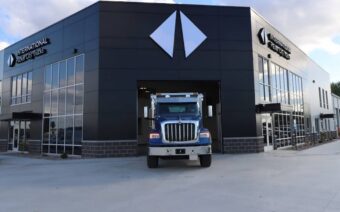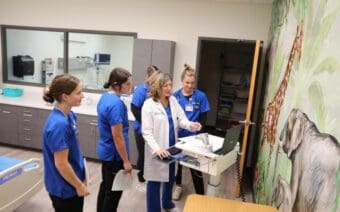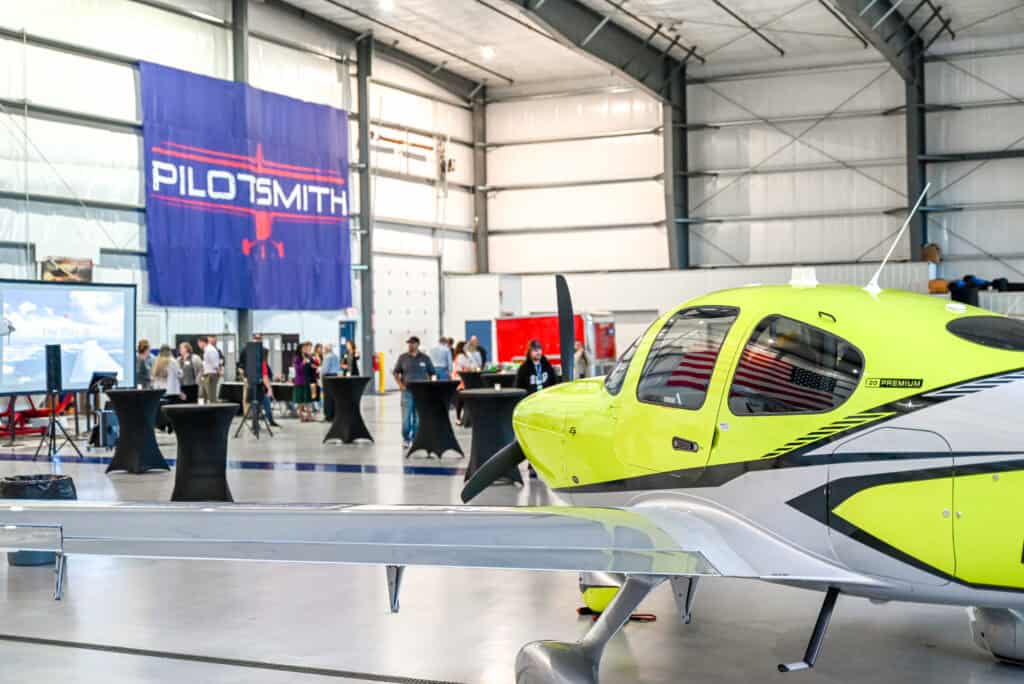
November 3, 2025
GREEN BAY – Recently celebrating its 10th anniversary, the Pilotsmith Flight Academy continues to see enrollment take off.
Headquartered at the Green Bay Austin Straubel International Airport (GRB), President/CEO Charlie Smith said Pilotsmith currently serves more than 400 students each year.
“Those 400 students in our program are split between our three locations in Green Bay, Appleton and Milwaukee, with Green Bay being our headquarters and main location,” he said. “Pilotsmith Flight Academy offers training programs ranging from private pilot certificates to advanced commercial and instrument ratings.”
Charlie said Pilotsmith’s state-of-the-art curriculum, experienced instructors and modern training fleet make it one of the fastest-growing aviation schools in the Midwest.
“We’ve seen tremendous growth in both enrollment and interest in aviation careers during the past several years,” he said. “We chose GRB as our headquarters because it offers the perfect combination of controlled airspace, modern facilities and access to commercial operations – providing our students with real-world flying experience in a dynamic environment.”
Charlie said the comprehensive training program is designed to take aspiring aviators from their first flight all the way to airline-ready status.
“Pilotsmith covers every stage of a pilot’s journey and gives first-hiring preference to qualified students who complete the full curriculum through the instrument instructor (CFI-I) level,” he said.
Charlie said most students complete Pilotsmith’s full program in 180-200 hours to become commercial pilots, while earning a flight instructor certificate typically takes about 220 hours.
“I want to be clear that becoming a commercial pilot does not mean working for the [major] airlines,” he said. “It just means pilots can receive some form of compensation for flying, but it’s not working at the [major] airlines quite yet.”
To work for major airlines, Charlie said a flight academy like Pilotsmith is simply the first step in a pilot’s journey.
“After they get their initial hours with us and become a flight instructor, they build the remainder of their time as a flight instructor,” he said. “After about 1,500 hours working in the industry, that’s when pilots are eligible to be hired by the airlines.”
Charlie said Pilotsmith is one of the select few training programs authorized in the State of Wisconsin to do professional flight training under FAA 141 regulations.
“That’s the gold standard in flight training,” he said. “We are actively placing people into air careers in freight, private and commercial. Our students go through our programs, graduate and get these jobs. In fact, we just had a whole bunch of turnover in instructors because they moved off to their jobs. We’ve already hired our second batch of people to replace them, so it’s awesome [the flight academy] is working so well.”
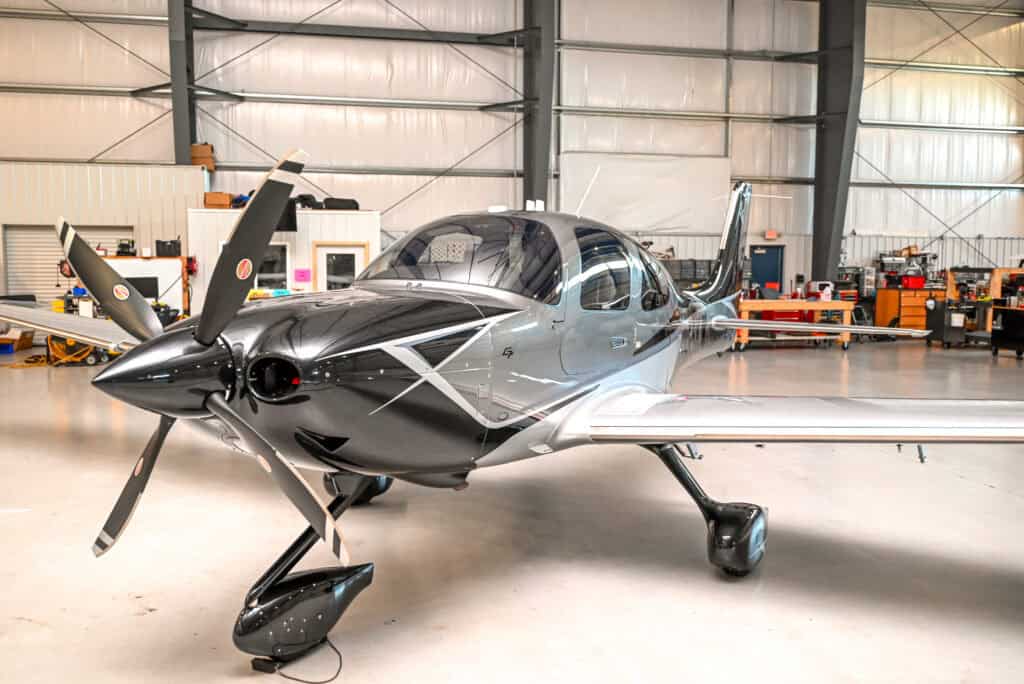
Charlie said safety is a central focus at Pilotsmith.
“Pilotsmith provides Cirrus training aircraft equipped with whole-airframe parachutes, in addition to traditional training aircraft,” he said. “We have 15 aircraft at the Green Bay location. After 100 hours of flight time, each aircraft goes down for maintenance and through a full inspection to make sure it’s safe.”
Since flight training aircraft see more wear and tear than a normal airliner, Charlie said safety is of the utmost importance.
“If you think of a traditional airliner, it takes off, flies from point A to point B and then lands,” he said. “In a two-hour lesson with one of our aircraft, it could have 20 takeoffs and landings. Our aircraft are maintained to a very high standard to ensure they’re always safe.”
A win-win
Marty Piette, airport director at GRB, said Pilotsmith is an important asset to the airport and the region.
“Their aircraft are in the air every day, providing invaluable training for the next generation of pilots while contributing to the overall activity and vitality of the airport,” he said. “We’ve been working with Charlie from day one. Obviously, we’re an airport, so we want to see aircraft and more landings and take-offs – that’s what we’re here for.”
Piette said part of promoting the flight academy is inviting community members to GRB for Pilotsmith special events.
“People like to see the airplanes up close and crawl around and touch them – it’s more of a long-term strategy to generate interest,” he said. “I’m happy with the partnership GRB has with Pilotsmith.”
Charlie said the “amazing” partnership with GRB is a “win-win” for everyone involved.
“The airport has really stepped it up in the last year or so and has been trying to help us grow,” he said. “We’re actually looking at opportunities with the airport right now for expansion for ourselves – a little teaser for the future. We want to expand and get bigger.”
Charlie said Pilotsmith also recently announced a partnership with Northeast Wisconsin Technical College (NWTC) to offer free prep classes for the private pilot written test.
“Classes began Oct. 30 and are available for students who are either enrolled in training at Pilotsmith, will enroll in training at Pilotsmith or decide not to do flight training,” he said. “We give them the written test prep training to prepare them to take their FAA written exams, which is free and done through NWTC.”
Charlie said Pilotsmith also offers degree opportunities.
“We have a partnership with Purdue Global – [which] was featured in Flying Magazine – whereas someone who does training with us can get credits online so they can get a bachelor’s degree at the same time, if they so choose,” he said.
More details about all these opportunities are available at pilotsmith.com.
A flight school is born
More than a decade ago, Charlie said he worked as a software developer by day and a flight instructor at Jet Air Group, a fixed-base operator at GRB, on the side.
Charlie said a joking comment from Jet Air Group CEO Al Timmerman – “You should take over the flight school” – eventually became reality.
“At the time, I was the only instructor there,” he said. “So, about six months after I started, I really did [take over the flight school]. I ran it part-time, while still doing development and things like that.”
What began as a part-time endeavor, Charlie said, soon became a full-time commitment when he recognized the demand for flight training in the area.
“I realized it could be a real thing,” he said. “I just took it and grew it. Initially, I focused on the hobby market, and then I had an opportunity to buy CAVU Flight Academy in 2018, which was another smaller flight school at GRB.”
Charlie said CAVU – which was founded by Sherwood “Woody” Williams – was already in the process of developing a professional program.
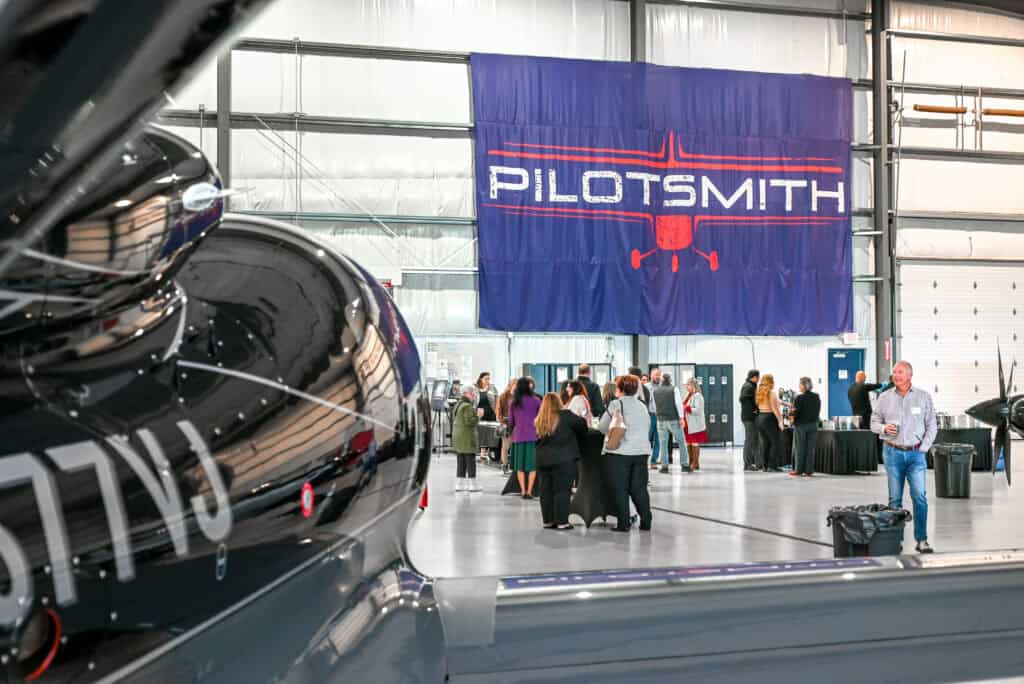
Though he planned a five- to 10-year growth strategy after purchasing CAVU from Woody, Charlie said those plans were disrupted by the COVID-19 pandemic.
“When COVID hit, it was different for the aviation industry,” he said. “Everything in aviation was completely shut down, and pilots got really frustrated. A lot of them were in the Baby Boomer era and took early retirement. A bunch of my friends all said they were taking early retirement, not going to fly anymore or went into different jobs.”
However, Charlie said he knew once COVID was in the rearview mirror, the demand for pilots “would be huge.”
“So, what I did was go out and hire people – my vice president at the time and several other instructors – and bought some airplanes,” he said. “I tooled everything up that I would need for the resurgence, and sure enough, the industry came back in a big way.”
Looking back, Piette said Charlie “capitalized at the right time.”
“From a flight school standpoint, I think he was probably one of the quickest in the industry to recover,” he said. “Then, when you look at the airlines during that timeframe, they furloughed all of their pilots, but then we got into this cycle where the airlines were in desperate need [of pilots]. That was all good for Charlie from a business standpoint.”
 Lakeside Foods supports food pantries, feeding programs
Lakeside Foods supports food pantries, feeding programs ‘A couple of waitresses reopened a legend’
‘A couple of waitresses reopened a legend’


